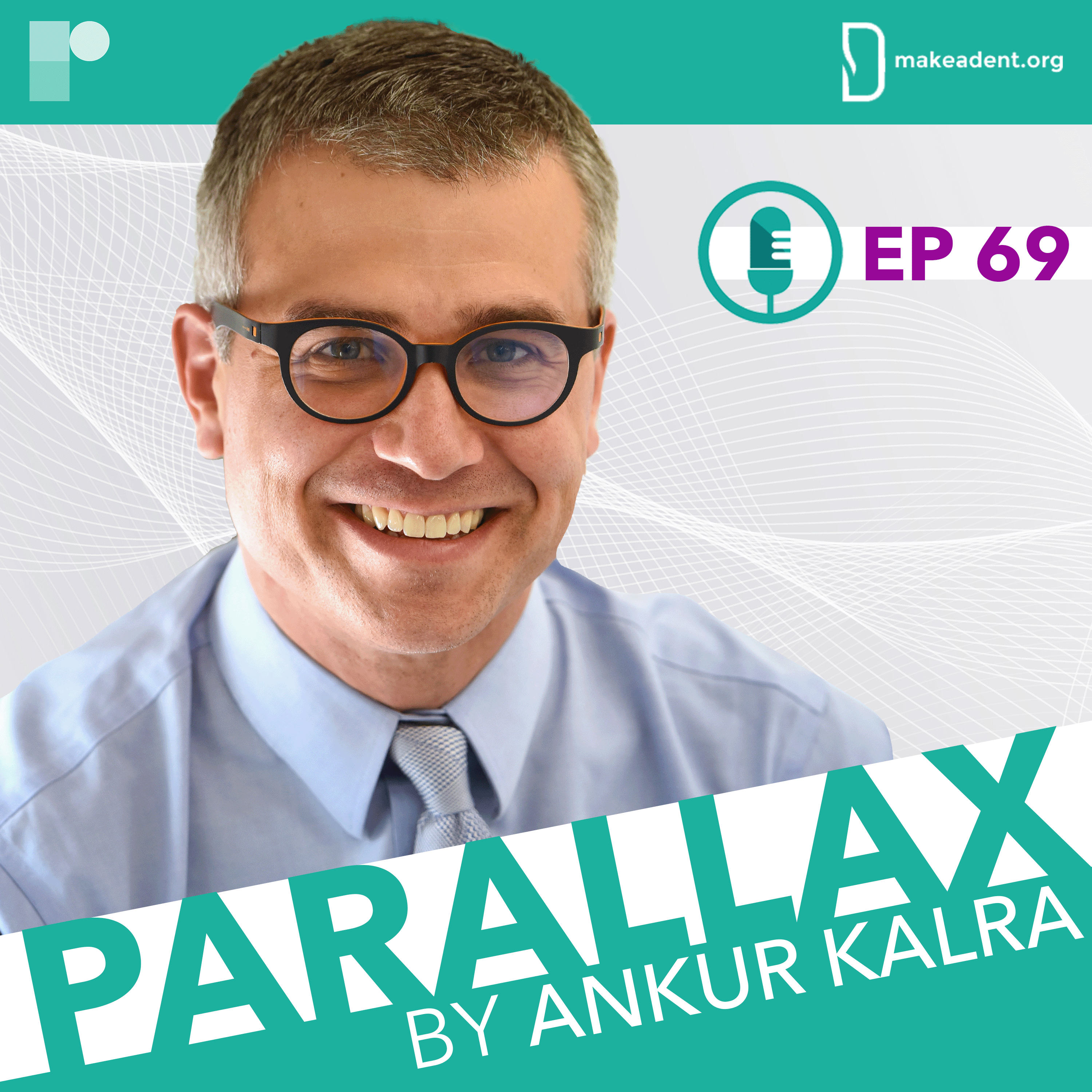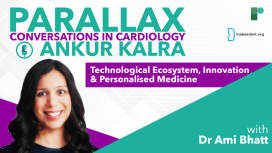
The projects that Dr Cherwek, the recipient of the 2021 Outstanding Humanitarian Award, values the most unite the following attributes: Simple, globally available, and impactful: In a recent study done in tea pickers in Assam, India, Dr Cherwek and his team first measured the impact of near eyesight correction on productivity and income. PROSPER showed that simple interventions can significantly improve the standard of living for communities.
This week guest on Parallax is Dr Hunter Cherwek, ophthalmologist and Vice President of Clinical Services at Orbis International.
In this unique episode Dr Kalra and Dr Cherwek discuss highly innovative solutions in ophthalmology that could be implemented in cardiovascular medicine.
They talk about AI assisted consultation, learning pathways incorporating simulators for early career practitioners and the Flying Eye Hospital. Dr Cherwek shares his experiences about working with local teams globally and the work that goes into setting up trials across the world.
How can we incorporate AI into practice and what does Dr Cherwek say to the sceptics? How can we make medical training accessible for more residents? What is Dr Cherwek’s advice to our listeners?
Questions and comments can be sent to “podcast@radciffe-group.com” and may be answered by Ankur in the next episode. Guest, Dr Hunter Cherwek hosted by @AnkurKalraMD. Produced by @RadcliffeCARDIO.





What is the Global Cardiology University project? How does Dr Anavekar encourage trainees to re-examine their role in patient care? What is his advice to our listeners?

As Dr Kalra asks Dr Rao about the ways in which early career faculty members can get involved with the organization at a state level. Dr Rao shares his insider tips and highlights key events where individuals can further their participation.
How can you get involved with your local ACC chapter? How can you improve your leadership skills? What is Dr Rao’s advice for our listeners?

He explains how the complexity of nutrition and the compounds generated by the gut microbiome can impact our health. We learn more about three compounds produced by our gut microbiome that have a strong connection with heart disease.
Through this conversation, Dr Vuyisich invites us to reframe our approach to nutrition and prevention as a question of food education and data-driven science.





